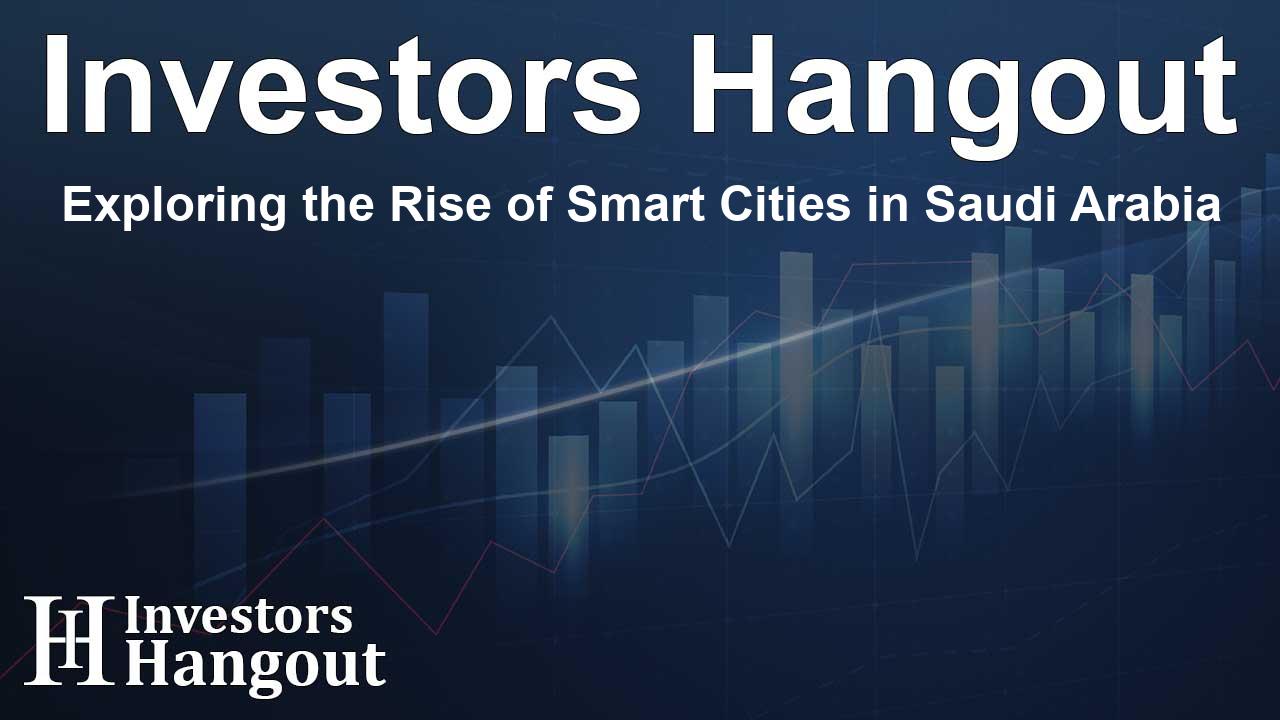Exploring the Rise of Smart Cities in Saudi Arabia

Transformation of Urban Living in Saudi Arabia
As the world increasingly embraces technological advancements, the Saudi Arabia smart cities market is on a promising trajectory. The valuation of this market is expected to surge from USD 22.2 billion to an impressive USD 112 billion in the coming years, signaling robust growth driven by an impressive compound annual growth rate (CAGR) of 26.1% through 2032.
Driving Forces Behind Growth
The remarkable growth story of smart cities in Saudi Arabia is largely fueled by the Vision 2030 framework, a forward-thinking initiative aimed at transforming urban environments. This ambitious strategy places significant emphasis on infrastructure development, digital innovation, and sustainability, enhancing the quality of urban life for residents.
Vision 2030 and Its Impacts
At the heart of this transformation is Vision 2030, which guides the Kingdom toward a more diversified economy based on high-tech and sustainable practices. This framework encourages investment in state-of-the-art digital solutions, making urban areas more efficient and livable as they integrate new technologies.
Government Initiatives Propel Smart Infrastructure
Strategic initiatives by the government are crucial in accelerating the deployment of smart infrastructure. Urbanization trends prompts authorities to enhance services with cutting-edge technologies, ensuring cities can accommodate growing populations while enhancing livability through efficient systems.
IOT and AI: Pioneers of Smart City Solutions
In responding to urban challenges, cities across Saudi Arabia are increasingly adopting Internet of Things (IoT) and Artificial Intelligence (AI) technologies. These innovations connect various sensors and devices, creating intelligent networks that enable real-time monitoring and automated responses to urban demands.
The Future of Integrated Urban Services
With the continual evolution of AI and machine learning, smart city systems are not merely experimental. They are becoming critical components of urban planning, enhancing decision-making processes and operational efficiencies across multiple sectors, including transportation, healthcare, and public safety.
Leading Segments of Smart Cities Market
The Smart Citizen Services sector is currently the frontrunner in generating revenue within the smart cities market in Saudi Arabia. The government’s efforts in public safety and essential services, such as healthcare and education, create a robust foundation for this growth.
Emerging Opportunities in Smart Transportation
Transportation technology stands out for its high growth potential within the smart cities paradigm. Massive investments are underway to tackle urban mobility issues, focusing on traffic congestion and public transport efficiency through intelligent transportation systems.
Prioritizing Infrastructure Investments
The smart cities framework eloquently highlights the necessity for substantial investments in hardware as well. This includes enhanced connectivity infrastructures and sensors, which are crucial for a seamless operational framework.
Software Solutions Enhancing Efficiency
The demand for innovative software solutions is on the rise, as these programs enhance analytical capabilities and data management across urban systems. A focus on advanced software can significantly optimize returns on hardware investments, leading to smarter and more responsive cities.
Challenges and Strategic Considerations
While the potential for smart city projects is immense, a host of challenges also loom. Issues such as high capital requirements, data security concerns, and integration complexities with existing systems can impede growth efforts. Addressing these concerns is essential for sustainable development.
The Role of Key Stakeholders
Influential technology providers are pivotal in shaping the competitive landscape. Companies are collaborating through strategic partnerships, marrying global expertise with local knowledge to effectively implement solutions that meet the Kingdom's strategic goals.
Conclusion: The Future is Bright for Smart Cities
The Saudi Arabia smart cities market is poised for tremendous development, characterized by the intersection of innovative technology and forward-thinking urban planning. The Kingdom’s commitment to the Vision 2030 framework ensures a future where urban environments continue to evolve intelligently, enhancing the quality of life for all residents.
Frequently Asked Questions
What is the anticipated growth of the Saudi Arabia smart cities market?
The market is projected to grow from USD 22.2 billion to USD 112 billion by 2032.
What role does Vision 2030 play in this market?
Vision 2030 serves as a guiding framework for digital transformation and improved urban living conditions.
Which technologies are key in smart city implementations?
IoT and AI technologies are central to creating smart, efficient urban systems.
What challenges does the smart cities market face?
Challenges include high capital costs, data security, and integration complexities.
How do public-private partnerships influence smart city projects?
They facilitate resource sharing and accelerate the implementation of innovative solutions.
About The Author
Contact Logan Wright privately here. Or send an email with ATTN: Logan Wright as the subject to contact@investorshangout.com.
About Investors Hangout
Investors Hangout is a leading online stock forum for financial discussion and learning, offering a wide range of free tools and resources. It draws in traders of all levels, who exchange market knowledge, investigate trading tactics, and keep an eye on industry developments in real time. Featuring financial articles, stock message boards, quotes, charts, company profiles, and live news updates. Through cooperative learning and a wealth of informational resources, it helps users from novices creating their first portfolios to experts honing their techniques. Join Investors Hangout today: https://investorshangout.com/
The content of this article is based on factual, publicly available information and does not represent legal, financial, or investment advice. Investors Hangout does not offer financial advice, and the author is not a licensed financial advisor. Consult a qualified advisor before making any financial or investment decisions based on this article. This article should not be considered advice to purchase, sell, or hold any securities or other investments. If any of the material provided here is inaccurate, please contact us for corrections.
